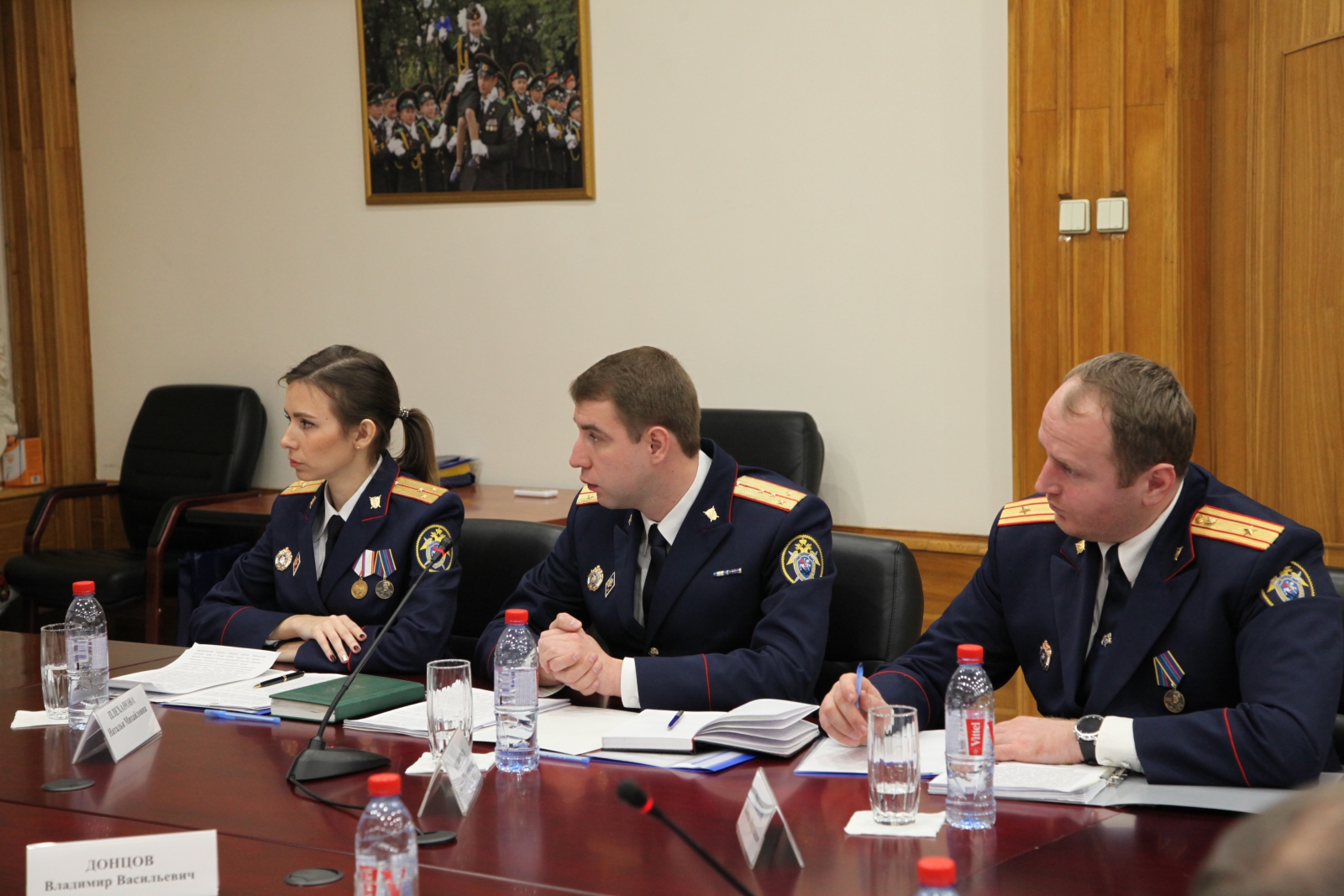
Address of the reception office of the Investigative Committee: Moscow, ul. Pervaya Frunzenskaya, d 3a
Address for writtent applications: 105005, Moscow, Tekhnichesky Pereulok, 2
Address of the reception office of the Investigative Committee: Moscow, ul. Pervaya Frunzenskaya, d 3a
Address for writtent applications: 105005, Moscow, Tekhnichesky Pereulok, 2

The Investigative Committee of Russia held the 3rd meeting of the Young Investigators Council today. This is an advisory body designed to discuss relevant matters of operation of young officers of the Investigative Committee, of their professional advancement, of the administrative support of their work and life, and of their importance for improving of the image of the service in the Investigative Committee. The meeting was attended by chiefs of several units of the Central Office and young investigators from regional directorates - members of the Council.
During the meeting, Alexander Bastrykin addressed the participants: “It is important and necessary to hold such meetings for not every problem can be seen and solved on the management level. Public organisations associated with the Investigative Committee were created precisely to obtain impartial and comprehensive information about the real situation, to see the problems an investigator faces daily.”
With regard to the fact that there are over 6,000 investigators with the period of service less than five years in the Committee, the Chairman noted the significance of the morale and educational activities. The Educational Outreach Directorate, public councils of the Investigative Committee and investigative veterans do a lot in this area.
The attending investigators reported on several aspects related to logistics and matters of development of professional behaviour and training of investigators at their workplaces. The participants discussed the practice of district investigators’ attachment to units of the Central Office, which provides for a significant improvement of their skills and an opportunity to gain experience investigating complex multi-episode crimes. The attendees told the Chairman about the work in regions and discussed a range of relevant procedural issues during a lively conversation, upon which contributed suggestions on some issues of law enforcement.
Many of the questions asked by young investigators were associated with provision of official housing, reimbursement of work travel expenses, renting, use of personal transport, organisation of medical and dental services for officers and their families, and a number of others.
At that, the Chairman of the Investigative Committee of Russia noted the need for every investigator to develop on their own: “The process of professional improvement through self-improvement should last as long as the service does. It should be consistent and unceasing. Then you will get both the results and career opportunities.”
Another speaker on the meeting was Vladimir Dontsov who shared his experience with the young investigators and emphasised that the upbringing of a highly skilled investigator was a long and complex process, but a crucial one.
Alexander Bastrykin stressed the relevance of morale development along with professional skills: “A true officer must not only investigate crimes in the professional manner but also stay concerned about human misery and try to secure the rights of victims, especially when socially unprotected categories of citizens are concerned. It is also essential to care for veterans and children’s troubles.”
Alexander Bastrykin drew special attention of the investigators to the need to help children: “We do not divide children on ours and someone else’s, which is why we have to keep helping children’s homes under our patronage.”